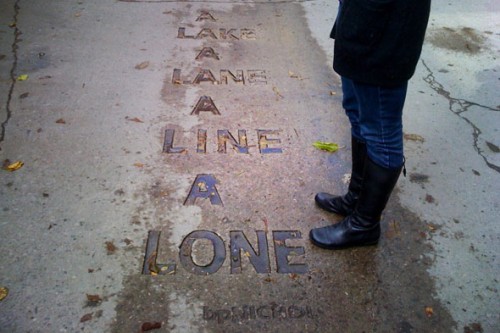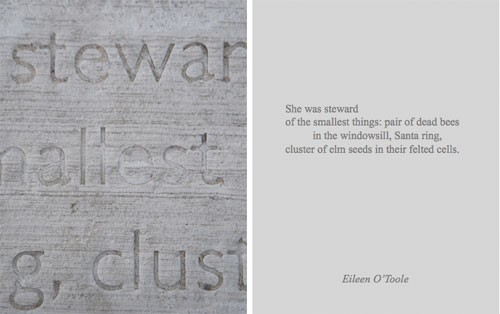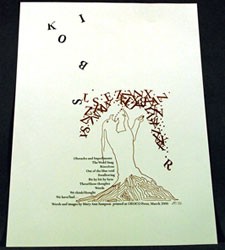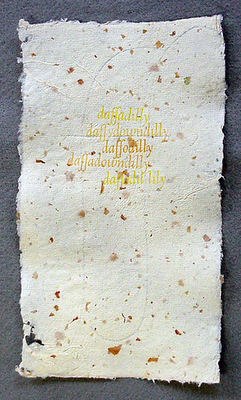I taught my intro to platen press class this past Sunday. One of the students brought along this poem from J V Cunningham, a mid-century poet I didn’t know.
On the Calculus
From almost naught to almost all I flee,
And almost has almost confounded me;
Zero my limit, and infinity.
During class she gave me more Cunningham’s poems to read — they are wry and very concise — haiku-length, which may be one reason I like them. That evening, when I read about Cunningham on the Poetry Foundation website, I found out he’s a master of the epigram — a brief, clever, and usually memorable statement. Here’s one:
This Humanist whom no belief constrained
Grew so broad-minded he was scatter-brained.
Looking deeper, I found this poem I particularly liked:
Meditation on Statistical Method
J. V. Cunningham
Plato, despair!
We prove by norms
How numbers bear
Empiric forms,
How random wrong
Will average right
If time be long
And error slight,
But in our hearts
Hyperbole
Curves and departs
To infinity.
Error is boundless.
Nor hope nor doubt,
Though both be groundless,
Will average out.
Read more about Cunningham here, where you can also hear some of his poems read aloud.





